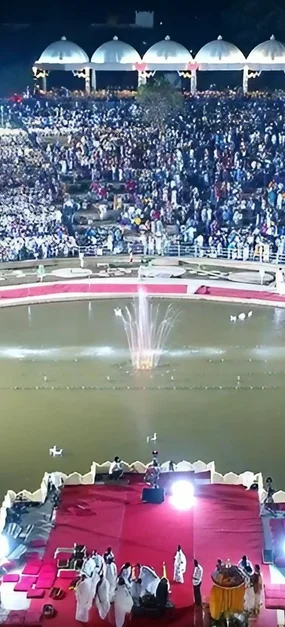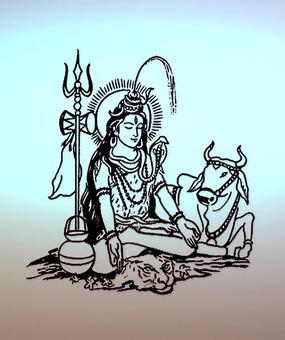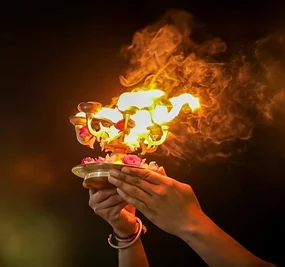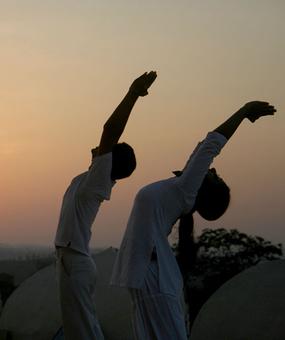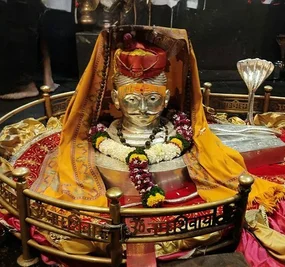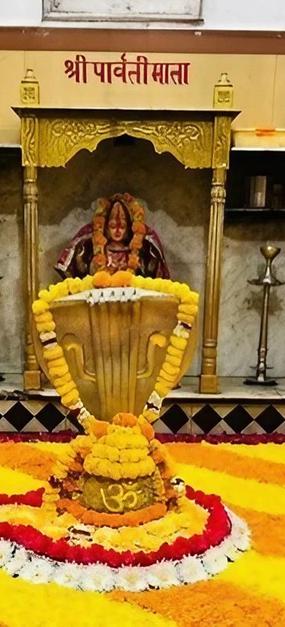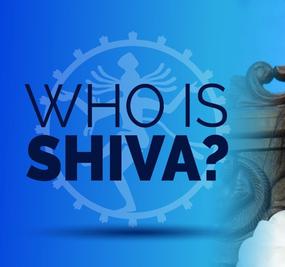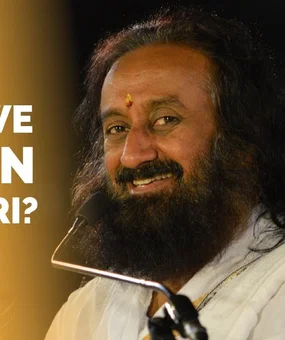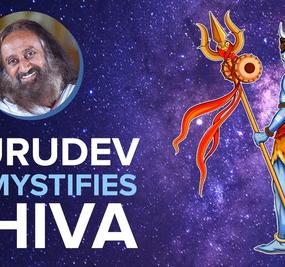Jyotirlingas are sacred shrines of Lord Shiva; it is believed that Lord Shiva himself visited these places and hence they have a special place in the hearts of devotees. There are 12 of them in India.
Jyotirlinga means ‘column or pillar of light’. The ‘stambha’ symbol represents that there is no beginning or end.
When Lord Brahma and Lord Vishnu had an argument about who was the supreme god, Lord Shiva appeared as a column of light and asked each one to find the ends. Neither could do it. It is believed that the places where these columns of light fell is where the jyotirlingas are located.

One of the 12 jyotirlingas, Mallikarjuna Jyotirlinga is in Mallikarjuna Swamy Temple and is dedicated to both Lord Shiva and his consort Goddess Parvati.
Where is the Mallikarjuna Jyotirlinga located?
The second jyotirlinga is in Sri Bhramaramba Mallikarjuna Temple or Srisailam Temple in Andhra Pradesh. This temple is situated on a hilltop by the Krishna river.
History of Mallikarjuna Jyotirlinga
Several rulers contributed to the building and maintenance of the Mallikarjuna Swamy temple. However, the first records appear in 1 AD in the books of the Shathavahanas empire builders.
Subsequently, Ikshvakus, Pallavas, Chalukyas, and Reddis, who were also followers of the Mallikarjuna Swami contributed to the temple. The Vijayanagara Empire and Chhatrapati Shivaji also improved the shrine and temple (building the gopuram in 1667 AD) respectively.
Worship was halted here during the Mughal era but resumed during the British rule. However, it was only after independence that this temple came back into prominence.
What is the story behind Mallikarjuna Jyotirlinga?
Lord Shiva and his consort Goddess Parvati could not make up their minds as to which of their sons, Ganesha or Kartikeya should get married first. To determine who would be first, they set a contest for the two: whoever would go around the world first would be the winner.
Lord Kartikeya immediately set off on his mount, the peacock. Lord Ganesha, on the other hand, went around his parents claiming that they were the world to him. It is said that going around one’s parents is equivalent to going around the world. So, he outwitted his brother and won the race. The pleased parents married their son off to Siddhi (spiritual powers) and Riddhi (prosperity). In some legends, Buddhi (intellect) is also believed to be his wife.
When Lord Kartikeya heard about this on his return, he was upset and decided that he would remain unmarried. (However, in some Tamil legends he is said to have two wives.) He left for Mount Krounch and started living there. His parents visited him there and hence there is a shrine for both there – a linga for Shiva and a Shakti Peetha for Parvati.
Interesting facts about Mallikarjuna Jyotirlinga
- Mallikarjuna Jyotirlinga is special in that it is both a jyotirlinga and a Shakti Peetha (special shrine to Shakti Devi – there are 18 of them) – there are only three such temples in India.
- It is believed that Lord Shiva appeared as Arjuna on Amavasya (No moon day) and Goddess Parvati as Mallika on Poornima (full moon day), and hence the name Mallikarjuna.
- The temple is a work of architecture with its tall towers and beautiful carvings. It is also enclosed within tall walls that fortify it.
- Devotees believe that visiting this temple brings them wealth and fame.
- It is believed that Goddess Parvati fought the demon Mahishasura by transforming herself into a bee. Devotees believe they can still hear a bee buzzing through a hole in the Bhramaramba temple!
While this temple hosts visitors throughout the year, it would be best to visit it in the winter months i.e. October to February. Visiting it during Mahashivratri (on 8th March this year) would be the ultimate treat for any devotee!
Read about other Jyotirlinga Temples
- 12 Jyotirlingas in India
- Trimbakeshwar Jyotirlinga
- Rameshwaram Jyotirlinga
- Kedarnath Jyotirlinga
- Grishneshwar Jyotirlinga
- Mahakaleshwar Jyotirlinga
- Mallikarjuna Jyotirlinga
- Bhimashankar Jyotirlinga
- Omkareshwar Jyotirlinga
- Nageshwar Jyotirlinga
- Somnath Jyotirlinga
- Baidyanath Jyotirlinga
- Vishwnath Jyotirlinga



